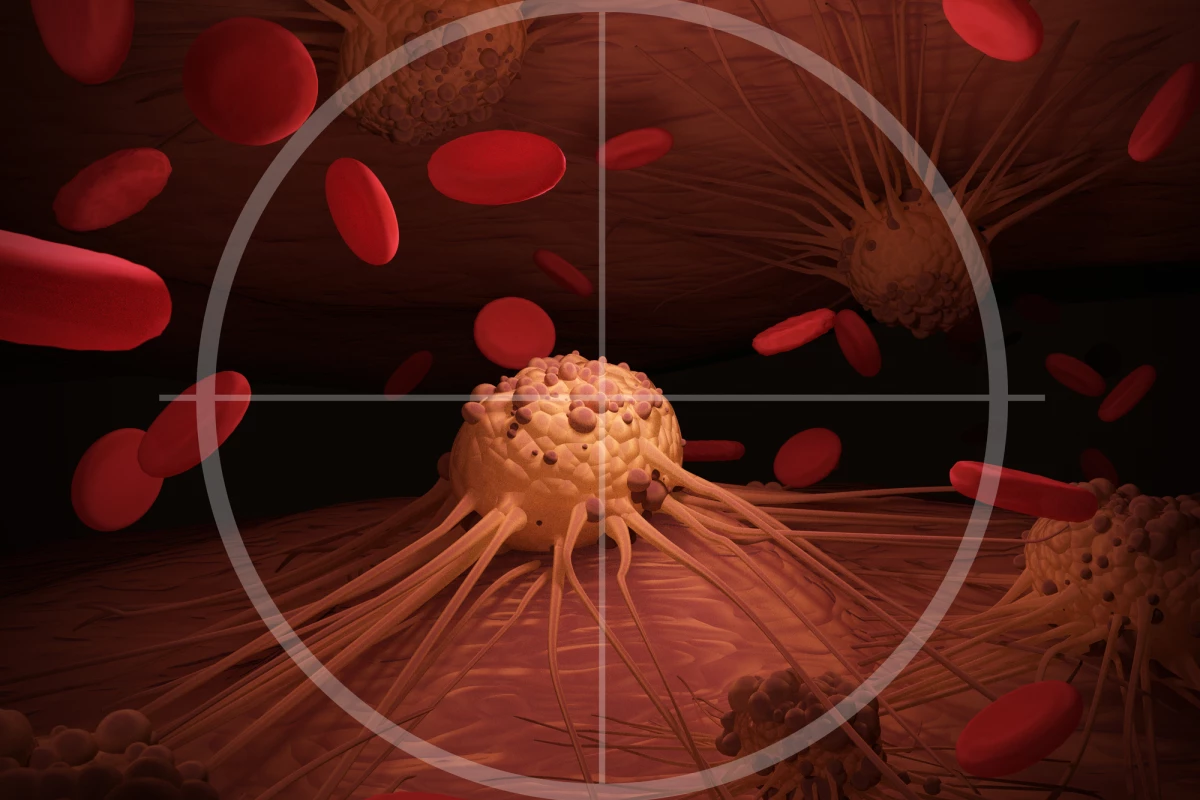Preliminary results from a small human trial testing a novel cancer drug revealed over half the cohort had their tumors stop growing completely. The experimental drug, called berzosertib, is moving to larger clinical trials with experts expressing cautious optimism over this promising new treatment.
Berzosertib is part of an entirely new family of drugs designed to target a protein called ATR. This protein is known to play a fundamental role in repairing damaged DNA, and inhibiting its activity should hypothetically disrupt a tumor's ability to proliferate.
“The unbridled growth of cancer cells places enormous stress on the process of DNA replication,” explains Panagiotis Konstantinopoulos, from the Dana-Farber Cancer Institute. “ATR helps them survive that stress: its job is to coordinate the halting of the cell cycle to check if the DNA is intact or needs repair. Drugs that inhibit ATR – that deprive tumor cells of such repair – have the potential to be particularly effective in some cancers.”
Newly published data from a Phase 1 human trial testing the safety of berzosertib reveals the experimental therapy is both safe and potentially efficacious. The Phase 1 trial tested the drug in around 40 patients with a variety of advanced tumors.
Phase 1 trials are not designed to investigate efficacy, instead they primarily focus on the safety and tolerability of a new drug in human subjects. However, as the study reports, the secondary anti-tumor endpoints seen in the trial were unexpectedly strong.
Over half of the cohort given the drug showed tumor growth halting, and the effect was even more prominent in subjects also concurrently receiving chemotherapy. A striking 15 out of the 21 subjects receiving chemotherapy alongside berzosertib saw their disease stabilize.
Darius Widera, from the University of Reading, suggests it may be too early to call this drug a game-changer, but notes the Phase 1 trial data is very encouraging.
“… the unusually strong effects of berzosertib, especially in combination with conventional chemotherapy, give reasons to be optimistic regarding the outcomes of follow-up studies with larger patient numbers and appropriate placebo controls,” says Widera, who did not work on this Phase 1 trial.
The results of a more recently completed Phase 2 trial, testing berzosertib in combination with chemotherapy for patients with severe ovarian cancer, revealed those treated with the combination therapy lived substantially longer than a control group treated with chemotherapy alone.
“Our results in his Phase 2 trial suggest that ATR inhibition in combination with chemotherapy has the potential to offer significant benefit to patients with chemotherapy-resistant HGSOC [high-grade serous ovarian cancer] and, potentially, other tumor types where ATR plays a key role,” says Konstantinopoulos, lead author on the Phase 2 berzosertib study.
It is still early days for these ATR inhibitor trials, but Paul Workman from the Institute of Cancer Research in the UK is excited about the promise this new treatment shows.
“Targeting a cancer’s ability to repair its DNA is a fundamentally important avenue of cancer research which has delivered some of the most important advances against the disease in recent years,” says Workman. “I’m keen to explore the potential for these ATR inhibitors to overcome resistance to other targeted drugs and to form effective treatment combinations.”
The Phase 1 study was published in the Journal of Clinical Oncology, while the Phase 2 study was published in The Lancet Oncology.
Source: Institute of Cancer Research, Dana-Farber Cancer Institute




